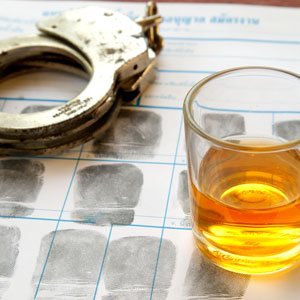Chapter 1: DUI Charges: What You Need To Know
 Defining DUI Charges In California
Defining DUI Charges In California
In California, a DUI (Driving Under the Influence) charge can be brought against a person if they are found to be impaired by alcohol, drugs, or a combination of both while driving. The fundamental definition is that the individual’s ability to operate a vehicle is impaired to any degree that affects their driving capability.
Common DUI Myths And Misconceptions
Dealing with clients from all walks of life over my time as a DUI defense attorney, I’ve heard a lot of things. This is especially true of misconceptions people have of DUI law and the legal system. But I’ve realized there are a few recurring ones. I’ll discuss them here. These misunderstandings can lead to severe consequences, so it’s vital you confront them to make informed decisions as your DUI case unfolds.
- Refusing To Submit To A Chemical Test Will Dismiss The Case
Some people believe that if they refuse to take a chemical test (breathalyzer or blood test), there won’t be any evidence of their blood alcohol level, and their case will be dismissed.
Yet, refusing a chemical test can result in incredibly severe consequences. If a law enforcement officer informs you of the consequences and you still refuse, you will face an automatic license suspension for a minimum of one year for a first offense, with increased penalties for subsequent offenses. On top of this, refusal will most likely be used against you in court, and the prosecution can argue that the refusal indicates consciousness of guilt.
- Drinking Coffee Or Water Will Sober You Up
Many believe that drinking coffee, water, or other drinks will help facilitate a quick sober-up and make them fit to drive.
The reality is that only time can lower your blood alcohol concentration. Drinking coffee, water, or other substances may make you feel more alert, but it in no way speeds up the metabolism of the alcohol in your system. The only truly effective way to sober up is to wait for your body to process the alcohol.
- Sleeping It Off For An Hour Is Enough
Some think that taking a short nap in their car will reduce their BAC enough to make it safe to drive.
A brief nap is unlikely to reduce your BAC in any meaningful way. It takes your liver approximately one hour to process one typical-sized drink, so a full night’s sleep is typically needed to ensure your BAC returns to a safe level.
Different Types Of DUI Charges
Now that we’ve gotten some misconceptions out of the way, let’s dive further into what DUIs are. There are several types of DUI charges in California, each with specific criteria and potential consequences:
Driving Under The Influence Of Alcohol
The standard charge is driving with a blood alcohol concentration of 0.08% or more. This is by far the most common DUI charge.
Driving Under The Influence Of Drugs
This includes impairment by prescription drugs, over-the-counter medications, medical marijuana, recreational marijuana, and illegal substances. There is no specified limit for drug impairment, so expert testimony is often required to establish the level of impairment, if relevant.
Combined Influence Of Alcohol And Drugs
A person can be charged if they are under the influence of both alcohol and drugs, even if their BAC is below 0.08%. The combined effects of both substances can severely impair driving ability.
General Impairment Charge
This is a broad charge that applies when a person is impaired to any appreciable degree, regardless of whether it is due to alcohol, drugs, or a combination of the two.
Zero Tolerance For Drivers Under 21
For drivers under the age of 21, any measurable amount of alcohol in their system while driving can result in a DUI charge. Penalties for underage DUI are more severe compared to those for drivers over 21.
DUI Causing Injury
This charge applies when a person driving under the influence causes injury to another. This is a more serious offense and can be charged as a felony in certain circumstances.
You can even be charged with a DUI for using prescription or over-the-counter medications, including marijuana obtained from a dispensary, assuming the medications impair your ability to drive safely. Some common examples include:
- Prescription painkillers or sedatives.
- Over-the-counter medications like certain antihistamines or cough syrups that cause drowsiness or dizziness.
- Medical or recreational marijuana.
The primary factor is whether the medication impairs your ability to operate a vehicle safely. It does not matter if the medication is legal or prescribed; impairment is the basis for the charge.
Unlike alcohol, where a blood alcohol concentration of 0.08% or more is the legal limit, there is no specific threshold for the amount of prescription or over-the-counter medication in one’s system. Charges in this context are based on observed impairment and expert testimony. Medications often come with warnings such as do not operate machinery or may cause drowsiness. If you ignore these warnings and your driving is affected as a result, you can be charged with a DUI.
In California, DUI charges can be complex and encompass several different scenarios, from alcohol impairment to simply having consumed cough syrup, as outlined above. Each type truly requires a nuanced defense strategy to ensure the best outcome.
For more information on DUI Charges: What You Need To Know, an initial consultation is your next best step. Get the information and legal answers you are seeking by calling (415) 782-6002 today.




